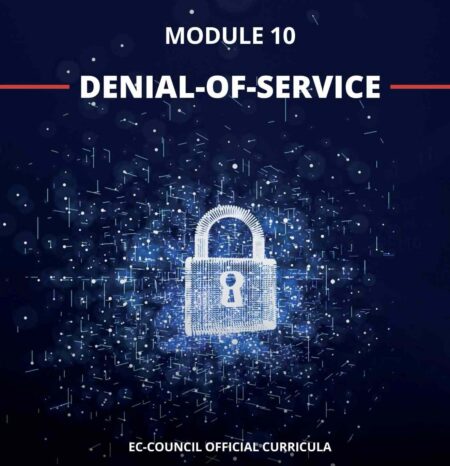If you have an online dental practice platform, you must safeguard it from hackers and gain your patient’s trust.
Healthcare sites are increasingly becoming a target for cybercriminals, especially those sites that have not invested heavily in their website security and left themselves open to data theft.
If you don’t have a secure dental website, it would create a trust deficit between you and your patients.
They would be wary of submitting their sensitive information like their email addresses or credit card information on your website.
Data breaches have become a big menace as the US health industry alone lost $ 6 billion a year due to patient data being sold in the black market and identity theft.
According to Statista, there were approximately 642 data thefts in 2020 in the US, and this number is rising.
Doctor-patient trust is extremely crucial and whenever a patient visits your website, the trust factor is extended there as well. A secure website is therefore essential for building trust with your patients.
Also Read:
- What are Keyloggers and its Types
- What is Generalized Exploit Techniques
- Importance of Learning Java For Cybersecurity
What Is a Secure Dental Website?
A secure dental website URL is preceded by “Secure| HTTPS” and a green padlock symbol. HTTPS (HyperText Transfer Protocol Secure) is a safe method of communication between a computer and a website.
It encrypts any incoming and outgoing messages between the browser and the website.
This method ensures that even if someone intercepts the data en route, it is useless to him or her. A secure dental website prevents any man-in-the-middle attack.
Various Methods Hackers Use to Steal Your Patient’s Data
Hackers use multiple ways to hack your website. Some of these methods include the following.
1. DDoS Attacks
In this kind of attack, the hackers try to flood your site with unsolicited traffic, which blocks your patients’ access to your website.
It will seriously impact your business if you are not able to engage with real patients after you have invested so much of your time and resources in promoting your company.
2. Viruses and Malware
Viruses and malware are small programs that are created to gain access to classified information from your server.
If your website is exposed to malware or virus, it can cause serious problems both for you and your patient.
What Can You Do?
You can do plenty of things to ensure that your patient’s data is secure from any unauthorized intrusion.
Keep Your Website and Software Updated
If you have created your website with the help of a CMS like WordPress, and have a lot of essential plug-ins and extensions, your website could be vulnerable to hackers.
Many of these plug-ins and extensions are created using open-source software programs, and their codes are easily accessible.
The hackers can analyze the codes to find any vulnerability and exploit it to get into your system.
Therefore, you must make sure that your CMS, apps, plug-ins, or any scripts you have installed are up-to-date. Also, ensure that your site is error-free.
It is necessary that your site is up-to-date with all the security patches in place. Hence, it becomes hard for hackers to break into your website.
Before you start the process of updating your website, you might have a question regarding the website maintenance cost.
In general, the cost of maintaining a website is 10% of the overall development cost. Further, cost varies based on the type of website, complexity, features & functionality, etc.
An SSL Certificate to Protect Patient Data
An SSL certificate would ensure that your dental website gets added security. The SSL certificate encrypts any data that is going from your website.
Therefore, even if hackers intercept the data, they will not be able to make use of it as it is completely encrypted.
Furthermore, if you have a remote payment option available on your website, you must get an SSL certificate to protect the sensitive banking information of your patients.
Protect Your Website
Installing an effective antivirus suite will ensure that your website is protected from eavesdropping, malware, and hacking.
Furthermore, a strong antivirus along with an SSL certificate will also protect your patients from phishing schemes in which the hacker impersonates your website and persuades your patients to share sensitive information like their usernames and password.
The SSL certificate will provide authority to your website and show that it is legitimate.
Improved HIPAA Compliance
An SSL certificate is a cost-effective and fast way to secure your dental website and reduces any risk of violating HIPAA compliance.
It will ensure that any digitally transmitted protected health information is secured against any unauthorized access.
It Improves the SEO of Your Website
If your website is well protected and is SSL secured, then Google gives such websites priority in ranking over non-SSL secure websites.
Therefore, if you have an SSL certificate for your website, it would help boost your SEO as Google’s algorithm will deduce that your website is safe.
Conclusion
Dental websites are increasingly becoming the focus of cybercriminals. Your dental practice has a huge amount of classified information about your patients including their health histories and banking details.
Any unauthorized access or stealing of this data can pose legal challenges for your practice.
Cybercriminals think that dental practices are comparatively easier to hack because the technology they use is comparatively less sophisticated than leading banks and big corporations.
As a service provider, you will have highly sensitive personal and financial information about your clients, you must keep them safe.
To ensure that your site never gets hacked, pay close attention to the dental web design from the beginning. Moreover, ensure to upgrade your dental site regularly to protect data and provide a better user experience.
Taking active care and investing in securing your website from hackers will help you build a trust factor among the customers. Moreover, it will help you to get more patients in the future.








